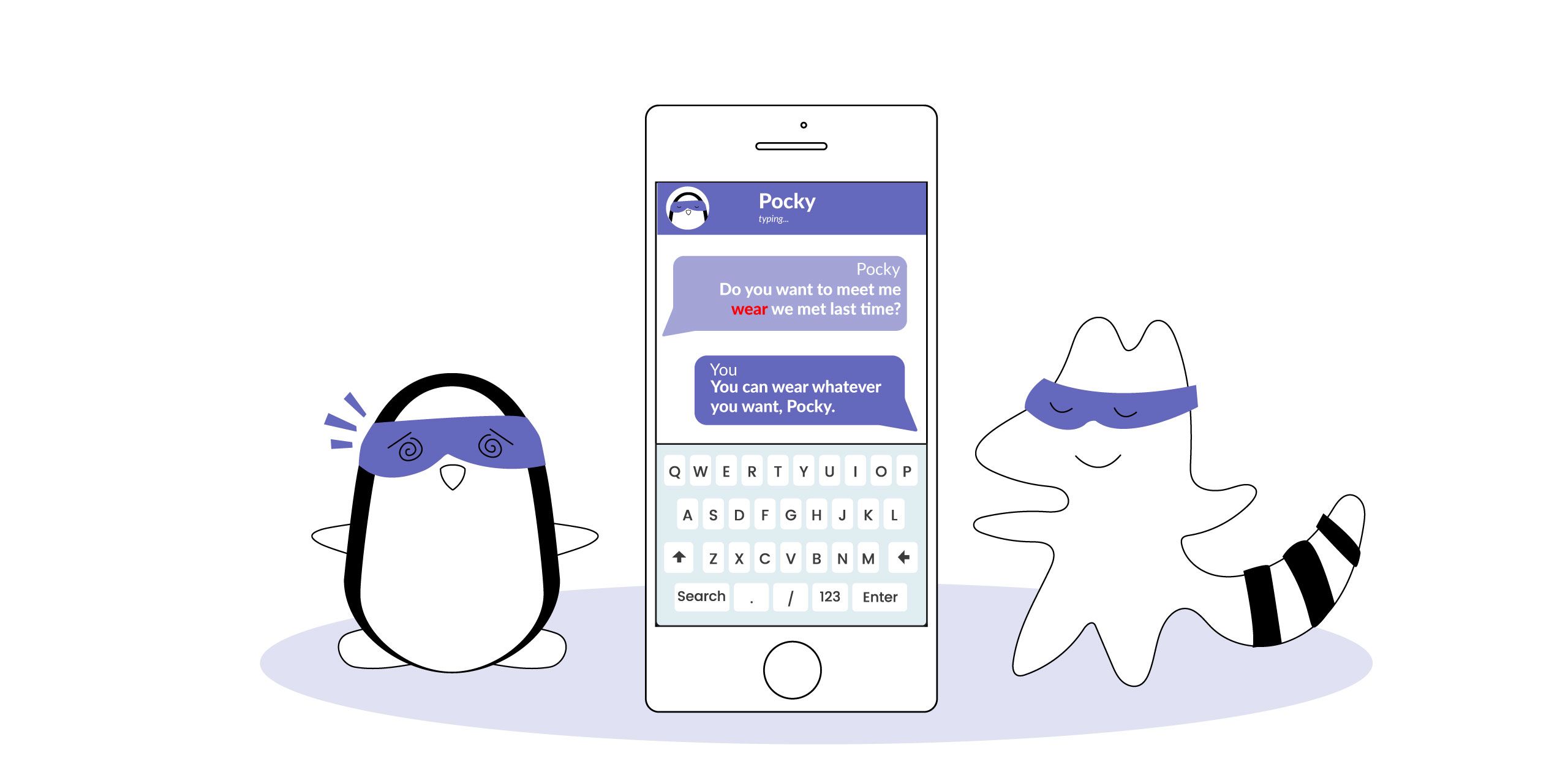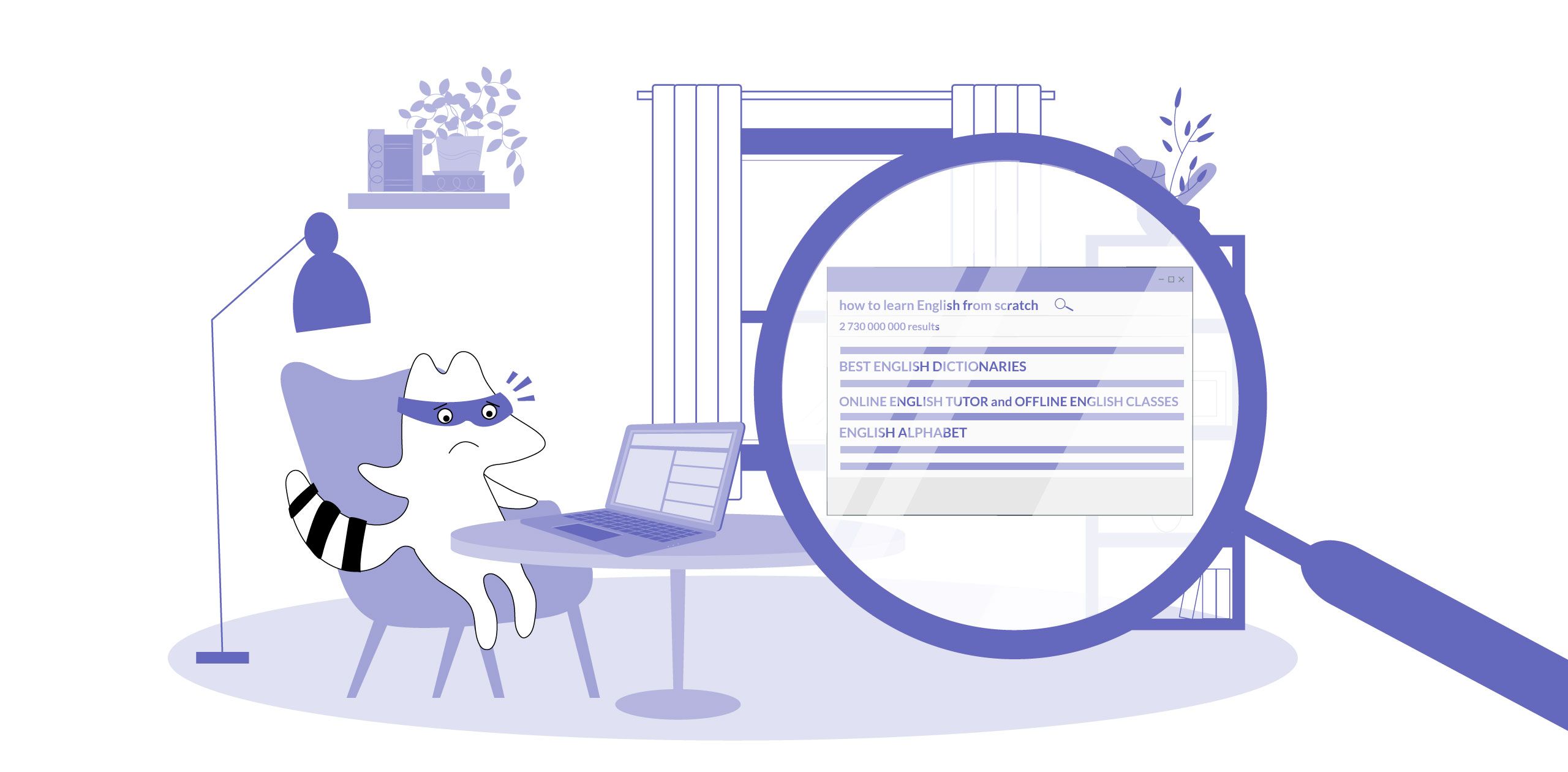
Speaking your native language always feels as natural as possible - after all, we learn to speak it long before we can even remember the process. When it comes to learning English or any other foreign language, it can become a real challenge.
At the very beginning of your English learning experience, your head might be exploding from the many questions: When to start? Which method to choose? How can I remember so many new words?
In this post, we will help you find answers to all these questions and provide you with a few valuable tips for beginners on how to start learning English on your own. Read on and get to work!
Learn English with Langster
Determine Your Purpose
If you want to succeed at anything, you need motivation. Motivation is both the reason and the energy to learn. And perhaps one of the most challenging things about the language learning process is keeping yourself motivated enough to devote your spare time to study English.
To ensure that your motivation will not disappear after the first lesson, you should find your personal reasons to learn English. This, in turn, will help you set realistic goals and milestones for your English learning journey and build your learning plan - both are necessary for making your learning experience much more effective.
The clearer you are about your purpose to learn English, the more manageable and enjoyable the process will be. When deciding why you want to learn English, make sure to choose something that you see in your day-to-day life - this way, you will notice changes faster.
Here are the most common reasons why most learners choose English as their second language:
- Work and career advancements. Decent English language skills can make you a better candidate for your dream job. Also, an English course will come in handy if you work with native English speakers or in a multicultural environment.
- Education. Your main purpose may be passing an English exam, enrolling in a foreign school in an English-speaking country, or participating in a language exchange program for ESL learners.
- Access to more information. If your professional occupation requires keeping up with the latest trends and industry designs or gaining in-depth knowledge, strong English skills will allow you to read sources with foreign publications.
- Hobbies. You can find the motivation to learn English by gaining even more satisfaction from your favorite activities - for example, the ability to read books in their original language or listen to your favorite English songs and understand the lyrics.
- Traveling. If you speak English, you can feel more comfortable traveling around the world and communicating with both locals and native speakers.
Knowing your reason to learn English is important because even the most interesting English materials can become a mundane, tiresome routine, making it difficult to continue the learning process.
Thinking about what benefits are waiting for you and the goals you will be able to achieve with a new language can be the main source of strength and inspiration that will keep you going.

Choose Your Learning Method
Next, you need to consider your personal needs, time availability, and budget to determine which learning method suits you best. You can either find a language school that offers group lessons, hire a personal tutor, or start learning English on your own.
Also, today you can choose to learn English online or offline, whichever is easier for you. Each of these methods of learning the English language has its own pros and cons, which we've already discussed in a previous post - check it out if you need more information. Here's a summary:
Personal Tutor vs. Group Lessons vs. Independently
One of the most significant advantages of learning English with a tutor, whether it's a private or a group lesson, is the instant feedback you receive. You also can get help with pronunciation and English grammar.
A private tutor is a more expensive option but provides you with the teacher's undivided attention. At the same time, group lessons allow you to practice English from the very beginning by participating in basic conversations with fellow English learners.
As a result, the best option for learning the English language from a beginner level is having classes with a personal tutor, most preferably a native English speaker.
An experienced teacher will be able to explain how the language works, provide you with useful vocabulary, point out the most common mistakes, and help you build a solid foundation for you to start speaking English. However, while taking an English course with a teacher is a proven technique, it's not the only one effective.
You can learn English from scratch independently - the vast amount of online resources can help you learn English quickly. But keep in mind that this learning method also takes a great amount of self-discipline and determination to succeed - you will find more tips below.
Online vs. Offline
If you eventually decide to learn English with a tutor, another thing to decide is whether you want to attend in-person classes or study online.
Online classes are a much more convenient, flexible, and even cost- and time-efficient option, as you don’t need to commute to a class. All you need is a laptop or another mobile device and a stable internet connection.
However, the benefits of in-person classes include staying fully attentive towards the learning process and fewer distractions. So, look at your priorities and choose a way to learn English that works well with your everyday life.
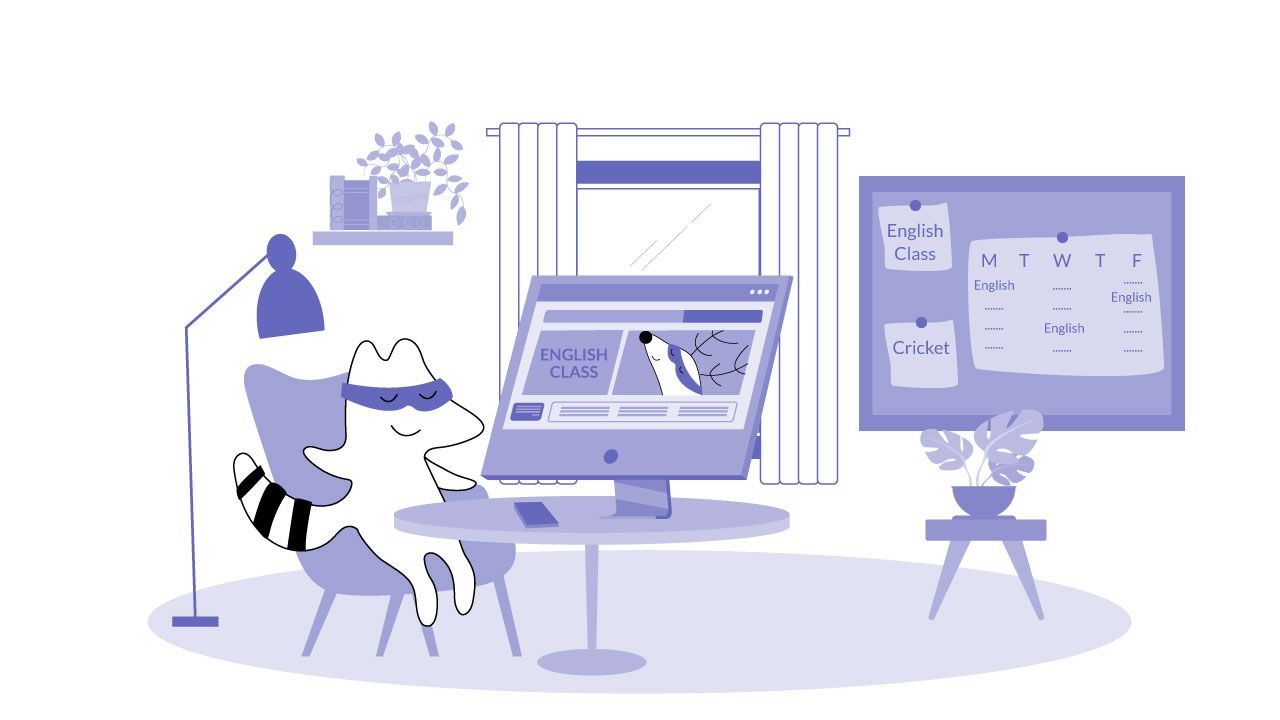
Tips for Studying English on Your Own
So, you are ready for a new challenge on your own. But how to build a learning routine that helps you focus on new vocabulary, pronunciation, and grammar rules and actually enjoy the process?
Here are some of the most valuable tips for learning English independently from scratch in a productive and effective manner:
Determine Your English Level
First things first, you need to know where exactly you stand. Fortunately, there are lots of free online tests for beginners that will help you determine your current English level. You can also find answers on units you’ve struggled with and figure out where to move next.
If your learning level is Elementary, you should start from the very beginning and even revise the alphabet. This will ensure that you learn new words with the correct pronunciation right away. Once you get familiar with reading and the most important words, you can move to basic grammar rules and sentence structure.
Find Reliable Sources
The next thing you need to do is find a grammar reference book that presents the information in an accessible and interesting way for you. Make sure to choose our post about the best English books for beginners, it contains examples of useful grammar books and great works of fiction.
You also can find materials on specific topics on specialized websites, such as videos and podcasts with full transcripts, grammar explanations, and quizzes.
When it comes to listening, don't limit yourself to watching movies with English subtitles only. Besides, not all of them are suitable for beginners because they may contain specific accents or specialized vocabulary the plot may require.
Instead, start with short films dedicated to a particular topic that contain simple words and phrases applicable to day-to-day life.
To develop reading skills, start with adapted literature for beginners, children's books, apps with short stories like Langster, or simple online articles. The biggest drawback of this method is the lack of speaking practice, so whenever you get the opportunity to participate in small talk with a native speaker in your daily life - make sure to use it.
Keep in mind that even when studying with a teacher, you cannot avoid independent work - knowledge can be consolidated only with practical use.
Diversifying your learning methods with new materials and different sources of information will allow you to cover each topic, whether it's auxiliary verbs or pronunciation, from various angles, which is essential for learning English fast.
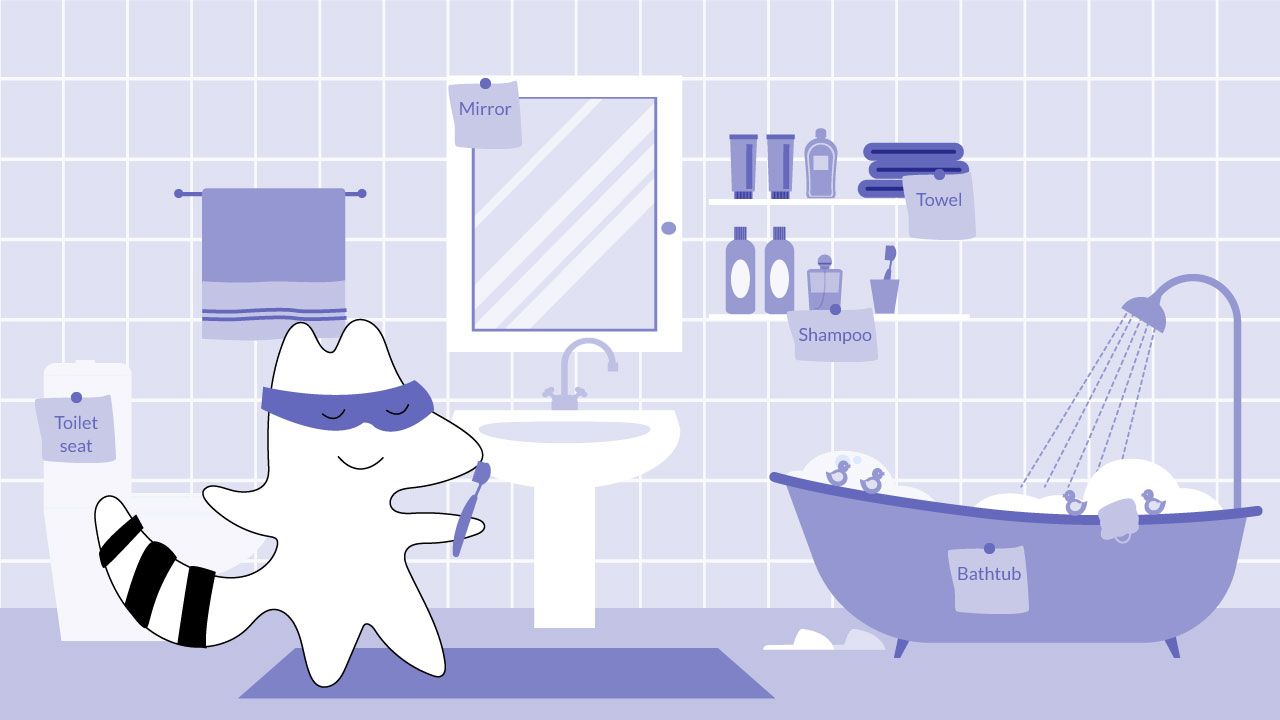
Immerse Yourself in the Language
You may think this advice implies staying in an English-speaking country. Of course, going abroad is an effective method, but it is quite radical and not suitable for everyone. Moreover, it is entirely optional - as you already know, learning English is accessible from the comfort of your home.
To immerse yourself in the world of a foreign language, it is important to set yourself up for learning. For example, one of the practical ways to quickly memorize new vocabulary is placing stickers on the things in your home or switching your smartphone to the English language.
Another possibility of language immersion is to allocate time for English on a daily basis - 15 minutes a day is enough. Doing one lesson on a specific topic per day won't take much of your time, but the regularity of reaching out to new English words will bring great benefits. The more often you refer to the material, the faster you will master the language.
Create an Individual Learning Plan by Setting Realistic Goals
Self-discipline and organization are essential in any project, and learning a foreign language is no exception. When creating your English learning plan, you should consider your learning level and move from simple tasks to more complex topics. Small steps will allow you to get closer to a bigger goal without getting frustrated on the way.
Be reasonable. In the pursuit of how to learn English quickly from scratch, you may not realize how hard it is, so you need to approach planning with a cool head. Think about what results you want to achieve in a period of time, but avoid setting unrealistic expectations for yourself. Otherwise, it will only lead to disappointment.
For example, you can start by determining the area of grammar that you plan to master in a month, in six months, in a year. Think about what books you would like to read in English when you reach an intermediate level or another way you can use English in your everyday life. The more tangible your steps are, the easier it will be to learn English on your own.
Make Mistakes
Don't think about mistakes as something undesirable or necessarily bad. After all, the only way to learn English is to make mistakes, identify them, and then fix them. Furthermore, it is impossible to gain experience without making errors, meaning that you simply will not move forward in your learning journey if you avoid mistakes.
So, don't be afraid to misuse verb forms, misspell new words, or make capitalization errors - these all contribute to developing your English skills.
Practice Makes Perfect
Practice is the basis for memorizing any new information, especially when it comes to language acquisition. Without active use, your knowledge will be incomplete.
Communication is one of the most critical components of the language learning process, so make sure to find ways to talk to native speakers or fellow English learners. For example, you can ask if some of your friends are also looking for an opportunity to practice English or look for local language clubs.
Even if there are no like-minded people in your city - do not worry! You can practice English on your own by keeping a diary or posting on social media in English - just get in the habit of describing your events for the day.
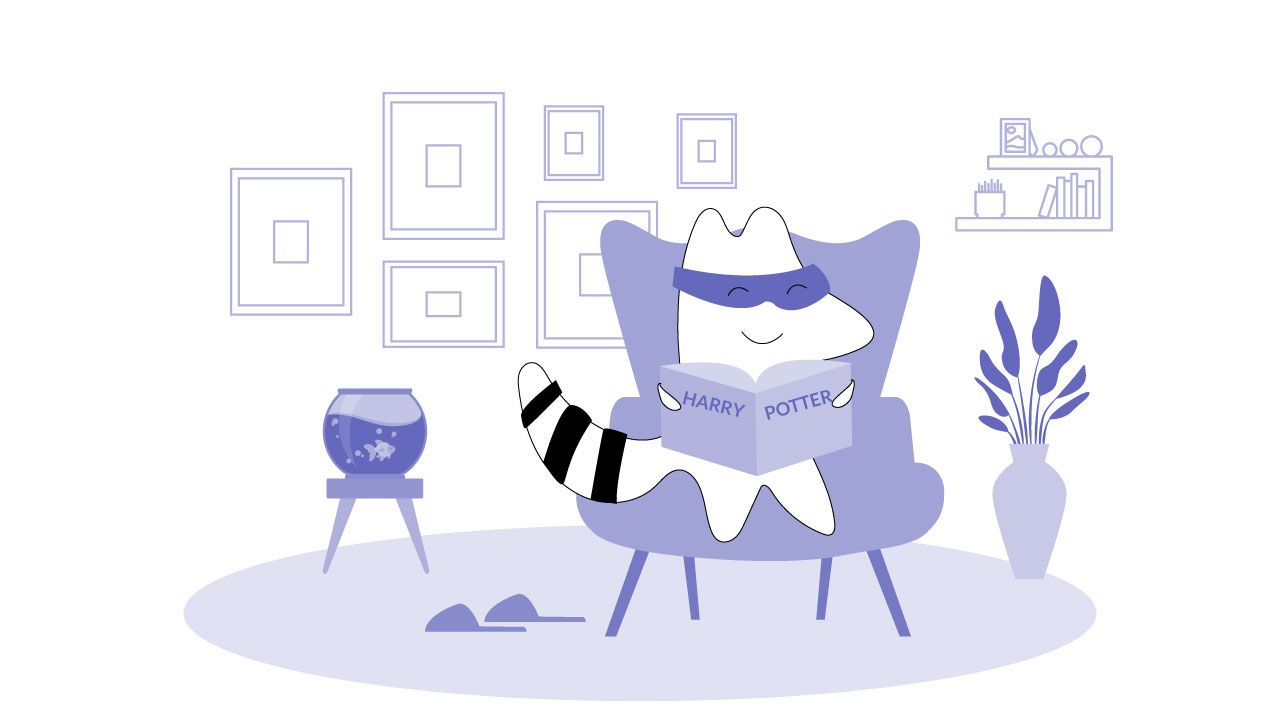
The Bottom Line
The start is always the most challenging part of every new project. However, with a thoughtful approach and realistic planning, you can easily overcome this part and, moreover, keep yourself motivated - the information from this post will help you achieve just that.
Remember to set clear goals for yourself and find exciting ways to learn — and new heights won't keep you waiting! To help you make the learning process even more enjoyable, we recommend downloading our Langster app. It is suitable for beginners and allows you to keep short English lessons at your fingertips. Good luck!








